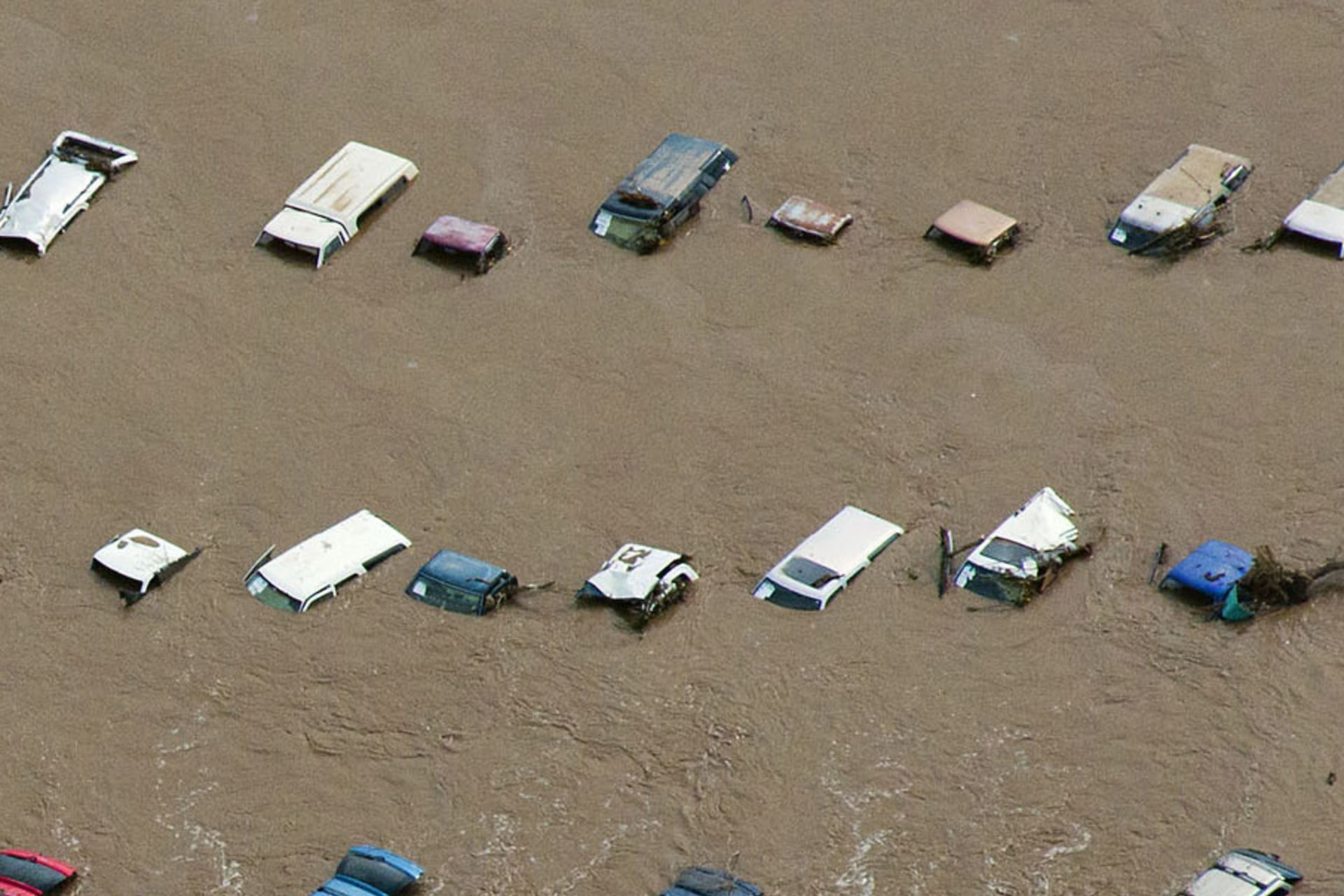Judging Guantanamo: The Court, Congress, and the White House
Published
Updated
The Bush administration’s approach to the detention and prosecution of prisoners held at Guantanamo Bay, Cuba, has been deemed unconstitutional by the U.S. Supreme Court. But the battle continues.
This publication is now archived.
Introduction
The status of the suspected terrorists detained by the United States at the U.S. Navy base in Guantanamo Bay, Cuba, continues to test the balance between the executive, judicial, and legislative branches of the U.S. government, and is expected to become an early test for President Barack Obama. On August 6, 2008, a jury of U.S. military officers convicted Osama bin Laden’s former driver of supporting terrorism, but acquitted him of a more serious charge--conspiracy to commit terrorist attacks. The native Yemeni was later transferred to a prison in his home country to finish out his sentence. The verdict, the first delivered at Guantanamo’s controversial military commission, followed a string of setbacks for the Bush administration in its attempts to try suspected terrorists. On June 12, 2008, in its third major ruling on the topic, the Supreme Court declared unconstitutional a major provision of the 2006 law that enabled detainees to be tried before military tribunals at Guantanamo. The ruling in Boumediene v. Bush, written by Justice Anthony M. Kennedy, declared that the military tribunals failed to offer the “fundamental procedural protections of habeas corpus.”
In plainer language, the tribunals’ tight handling of prosecutorial evidence and limits on appeals made it too difficult for detainees to build a case to challenge their detention. “Liberty and security can be reconciled,” the majority opinion stated. While the ruling represents the third consecutive setback for the Bush administration, it does not mean Guantanamo will close quickly, or even that the tribunals will halt. Yet with hundreds more petitions for habeas corpus pending, pressure to send some detainees back to their home countries may grow. Based in part on the Supreme Court ruling in Boumediene v. Bush, a federal judge declared in November 2008 that five of the six defendants in the case were being held unlawfully at the camp; preparations were later made for three of the men to be transferred to Bosnia. Still, analysts believe President Obama will face tough choices on fulfilling campaign pledges to close the base and release or relocate the roughly 250 detainees still in U.S. custody.
Constitution vs. Jurisdiction
Previous rulings in 2004 and 2007 focused primarily on the question of jurisdiction: In effect, did the fact that the detainees were held on a Navy base in Cuba obviate the need to involve the U.S. civilian court system.
In 2004’s Hamdi v. Rumsfeld (PDF), the Court ruled the White House does not have a “blank check” to indefinitely hold and deny legal access to detainees who are U.S. citizens. Then in late 2007 the Supreme Court heard oral arguments in the cases of Boumediene v. Bush and Al Odah v. United States, both of which challenged the suspension of habeas corpus--the right to challenge one’s detention--and pondered what role, if any, U.S. courts should play in prosecuting the Guantanamo detainees. But it was not the first time the Supreme Court considered the legality of the Bush administration’s detention of so-called enemy combatants.
The Supreme Court had already ruled against the Bush administration in 2006, when it determined the White House’s decision to try detainees at Guantanamo Bay in military tribunals is illegal, in large part because they lacked congressional sanction. The decision in that case, Hamdan v. Rumsfeld, found military commissions did not comply with U.S. military law, the laws of war, or the Geneva Conventions, which protect the rights of detainees during wartime. The opinion was projected to have far-reaching consequences for the Guantanamo detainees. Congress, still led by Republicans in late 2006, intervened by passing the Military Tribunals Act--the law found wanting by the court in the June 2008 ruling. In August 2008, Hamdan was found guilty of supporting terrorism, though his attorneys vowed an appeal (WSJ). He was sentenced to sixty-six months in prison and later transferred to Yemen; his sentence is due to be completed by the end of 2009.
White House Arguments
Administration lawyers have said military commissions are required because of the security threat posed by these prisoners, whom they define as “unlawful” or “enemy” combatants, and the sensitivity of the evidence presented, which could endanger U.S. personnel in the field and hinder intelligence gathering. Indeed, four of the dissenting justices on the Boumediene v. Bush ruling in June 2008 agreed with this view. Justice Antonin Scalia declared the court’s ruling “will almost certainly cause more Americans to be killed.” Chief Justice John G. Roberts declared the ruling to be “judicial activism,” a standard conservative criticism of rulings deemed to infringe on the responsibilities of the executive and legislative branches of government.
Peter Danchin, an international law expert at the University of Maryland, suggests the White House may favor military tribunals because the bar there is set lower for conviction than in courts-martial or criminal courts, which require more evidence to convict. In 2006, when Congress passed the Military Commissions Act to legalize military commissions, it also legalized “alternative interrogation practices” by the Central Intelligence Agency (CIA).
A Long Battle
The legal jockeying over Guantanamo began with the capture of Hamdan, a Yemeni bodyguard and driver for Osama bin Laden, in Afghanistan in November 2001. Hamdan was charged in July 2004 with conspiracy to attack civilians and commit acts of terrorism, and was held at Guantanamo Bay from 2002 to late 2008. He claims he is innocent and has called into question his status as an “enemy combatant.” “The fundamental concept is: What did [Hamdan] do that violated some principle of international law?” asks Raymond M. Brown, an expert on international humanitarian law at Seton Hall University. “Proximity to bin Laden? They don’t seem to be able to link him to some violation of the laws of war, which is what they need to do.” Hamdan’s lawyers claim the military commissions are unlawful under Article III of the Geneva Conventions and do not uphold basic military justice protections for wartime detainees. A U.S. Court of Appeals, which included current Supreme Court Chief Justice John G. Roberts Jr., rejected an appeal by Hamdan in 2005, claiming that the Geneva Conventions do not apply to members of al-Qaeda.
The Supreme Court, however, disagreed. Writing for the majority, Justice John Paul Stevens concluded, “The rules specified for Hamdan’s trial are illegal.” The court found that the proposed military commissions comply neither with the U.S. military’s Uniform Code of Military Justice nor the Geneva Conventions’ Article III, which guarantees certain rights for prisoners of war. Stevens added that the proposed commissions did not uphold the defendant’s right to be present at the proceeding. Also at issue was what the court determined to be a lack of proper congressional oversight or judicial review. “The Court’s conclusion ultimately rests upon a single ground: Congress has not issued the executive a blank check,” wrote Justice Stephen G. Breyer in his majority opinion. “The court is saying you have to provide this basic level of fairness,” said Deborah Pearlstein, who founded Human Rights First’s U.S. Law and Security Program. “That is, the defendant has the right to see the evidence against him. Otherwise, how do you defend yourself?”
Yet some on the court said because of the defendant’s alleged ties to terrorism and the sensitivity of the evidence against him, a military tribunal was necessary. As Justice Clarence Thomas wrote in his dissenting opinion in the 2006 Hamden case, “The common law of war establishes that Hamdan’s willful and knowing membership in al-Qaeda is a war crime chargeable before a military commission.” Thomas said the court’s decision will “sorely hamper the president’s ability to confront and defeat a new and deadly enemy.” Some legal experts say these arguments are problematic. “If, in a particular case, the introduction of evidence is a serious and a demonstrated threat, that’s for court and judge to address in a case-by-case basis,” says Pearlstein. Defense attorneys have also questioned the fairness of convicting Hamdan on a charge that was not considered a war crime prior to November 2001.
Since the Hamdan case a number of high-profile decisions have gone against the Bush administration. Following the Boumediene v. Bush decision in June 2008, Washington, DC, federal district judge Richard J. Leon ruled that the six men in that case were being unlawfully held (NYT). The judge said the evidence underpinning the government’s case--“a classified document from an unnamed source”--was too weak for the charges to stand. “To rest on so thin a reed would be inconsistent with the court’s obligation,” Leon said. In December 2008 the Pentagon announced that three of the men would be transferred to Bosnia, where they became citizens before their arrest in 2001.
What Happens to Detainees Now?
Of the approximately 250 detainees remaining at Guantanamo Bay--most of whom have been labeled “enemy combatants” by the Bush administration--only ten were subject to military commission charges at the time of the June 2008 Boumediene v. Bush decision. The ruling left open the possibility of these proceedings moving forward, and President Bush had hinted he would ask Congress again to pass legislation integrating the court’s extension of habeas corpus to Guantanamo into the tribunals. By the end of 2008, that prospect was uncertain.
Meanwhile, the administration’s dilemma only deepens. Of the detainees not charged, according to Benjamin Wittes, a public law specialist at the Brookings Institution, a large number already marked for transfer to the countries of their birth have been held primarily for fear that they will be tortured if send home. In other cases--including those of approximately one hundred Yemenis in detention--the concern is that the government will simply set all of them free rather than pursue charges on evidence gathered by the United States. In December 2008, a potential solution emerged when Portugal announced it wanted to assist the incoming Obama administration in resettling some hard-to-place detainees, and urged other European countries to follow suit (WashPost). “The time has come for the European Union to step forward,” Portugal’s foreign minister, Luis Amado, urged in a letter made public. Yet a number of issues continue to vex the detention center’s fate, including how to respond to the five detainees who have announced plans to plead guilty (NYT).
The Next President and Gitmo
The question of Guantanamo will be passed on to the Obama administration even though President Bush, Defense Secretary Robert M. Gates, and Adm. Mike Mullen, chairman of the Joint Chiefs of Staff, have all said they would like to close it. Obama, like his Republican challenger for the White House, Sen. John McCain (R-AZ), has called for Guantanamo to be closed. Gates, who will stay on as Obama’s defense secretary, has suggested that any attempt to close the facility would require legislation, for instance, denying detainees the right to emigrate to the United States (Reuters). On his first day in office, Jan. 20, 2009, Obama requested a temporary suspension of all military tribunals at Guantanamo subject to a review by his administration of the process by which detainees are tried.
Written with contributions by Lionel Beehner, Greg Bruno, Michael Moran, and Eben Kaplan. t





